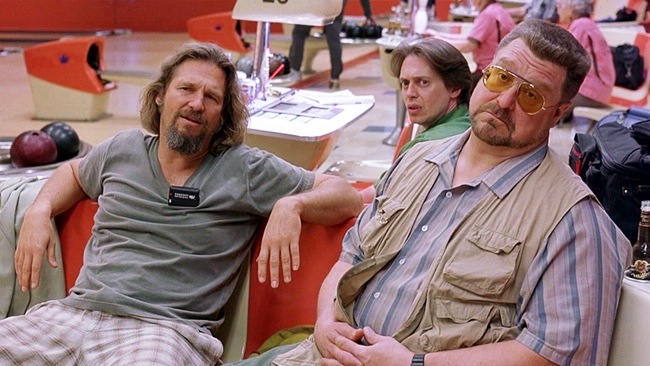I've successfully made it a full week of posting every day! We're getting pretty deep into December now... the days are still growing a little darker with each passing one, the airs blowing a little colder, maybe I'll even see a little snow before this weekend is out. And with the darkening of the days comes a darkening of the songs. And the beers. Actually, mostly the beers, but for today's purposes the song is probably dark enough to cover that base for the entire rest of the holiday season. Let's get right down to brass tacks and tackle the beautifully brutal "Coventry Carol."
This is admittedly one of the more widely known carols that I'm going to cover, but it still deserves a place on the list. There's a damn good reason that you won't hear Gene Autry belting this carol over the radio. If you're like me, you probably heard the music and thought "Well that sounds a little on the melancholy side, but it's still nice" without ever paying attention to the lyrics. Let me give you a sample:
Herod, the king, in his raging
Charged he hath this day
His men of might in his own sight
All children young to slay
Then woe is me, poor child, for thee,
And ever mourn and say
For thy parting neither say nor sing
Bye bye lullay, lullay
"Jesus..."
You said it, dude. "Coventry Carol" is sung from the perspective of a mother mourning for her child who is about to be murdered. If you're not up on your biblical history let me give you a quick rundown on the "Massacre of the Innocents." King Herod was the Roman-appointed governor of Judea, and he wasn't known for his mental stability. According to the Bible, after hearing word of the birth of a new King of the Jews in Bethlehem, he feared that the "king" would come to take his throne. To prevent this, he ordered that all male infants under the age of two be killed. Jesus survived, according to Matthew, thanks to Joseph hustling his wife and child to Egypt, where they remained until Herod's death. The gospel of Matthew is the only book in the Bible that describes the Massacre of the Innocents.
Obviously "Coventry Carol" comes to us from a bit more recent time than that, but not by a whole lot. This is one of the few religious carols that exists today with such ambiguous roots. We know that it was sung as a part of a medieval "mystery play" called The Pageant of the Shearmen and Tailors, which was one of ten "mystery plays" that were performed annually in Coventry, now West Midlands, England. The earliest known performances of these plays place their origin in the late 14th century, and we know they continued annually for 200 years. Unfortunately, "Coventry Carol" is the only surviving musical number from the two out of the original ten plays that there is record of. The Pageant of the Shearmen and Tailors depicted New Testament stories from the nativity through Herod's massacre, so it's inferred that "Coventry Carol" was a closing number. The tune to which it's sung we do have an absolute point of origin on: it was written in 1591 by a composer named Thomas Mawdyke, and that is the music we know today. The version of the lyrics we have date from 1534, as transcribed in an "edition" of the play, by Robert Croo (or Crowe), the manager of the pageant at the time. His manuscript was transcribed by the antiquarian Thomas Sharpe in 1817, and again in a second edition in 1825. The centuries-old manuscripts had decayed with time, and he was unable to transcribe anything except for Shearmen and Tailors, and even then only one carol. The remaining manuscripts were lost in a fire in 1879, leaving us with just "Coventry Carol."
Thank god not all art from the era was lost
That was some heavy-duty history, so let's move on to something lighter, namely the reason the carol experienced a renaissance in 20th century England. It began on November 14, 1940, when the Luftwaffe bombed Coventry Cathedral in one of their many blitzkrieg air raids. That year on Christmas day, with the people of Britain still under constant attack from German bombers, the then-provost of Coventry Cathedral, Fr. Richard Howard, delivered a radio address to his congregation throughout Britain. In it he called for the British people not to wish for revenge on the Germans, but instead to seek forgiveness and reconciliation for them, and to use that attitude to help build "a more Christ-like world." The address concluded with the singing of "Coventry Carol" by the choir. The bombed remains of the cathedral were left standing as a memorial to the dead and as a garden of peace. Fr. Howard, in the wake of the bombing, had the words "Father Forgive" inscribed on the wall behind the altar of the ruins.
I think that's what I'll remember when I hear "Coventry Carol" from now on. Not its morose roots, but its modern legacy of forgiveness. And I don't mean to get too preachy here, but 2016 has been a rough year for a lot of reasons, and I don't think I'm out of line in saying that we're living in dark times. It's okay-- we've been in them before and we'll get through them. But all the same I hope the lesson of that broadcast in 1940 is the prevailing one this Christmas. We've got a long way to go, but we can start by finding some room in our hearts for those we're not fond of. Take it from this heathen: if Christ forgave Herod for the Massacre and Fr. Howard forgave the Germans for the blitz, I think I can get behind building a more Christ-like world in the wake of this storm of a year we've just weathered.

No comments:
Post a Comment